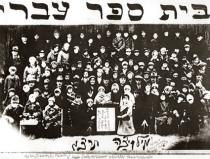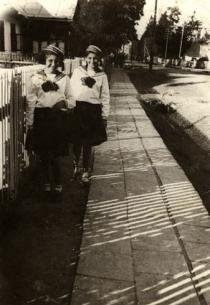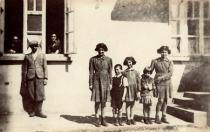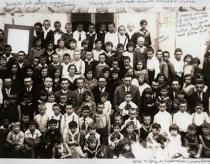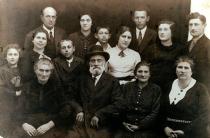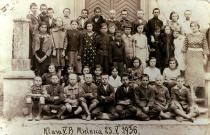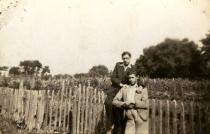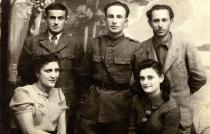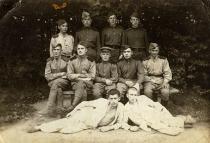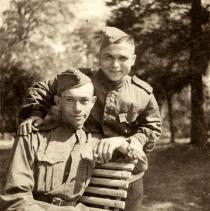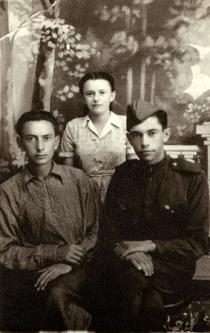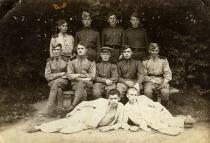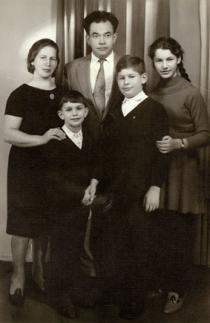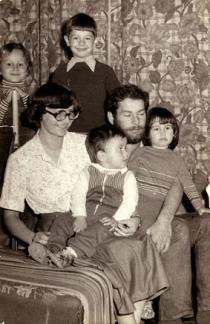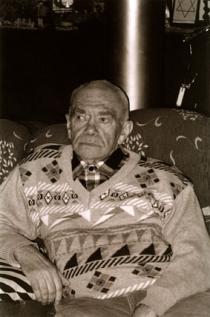This is a photo of my sisters Sara and Dwora König. The photo was taken in Mielnica Podolska in the 1930's. I think that it was Dawid Szternberg who took it.
I think my parents, Abram and Gitel König, met thanks to matchmaking. They had to be introduced to each other by matchmakers, I don't see it any other way. my father was from Kolomyja, near Stanislawow. Mom was born in Mielnica. So where's one and where's the other? Where would they be supposed to meet?
My parents were an accordant couple. There were no rows, I don't remember anything bad happening.
There were five of us at home: me, my three sisters Sara, Dwora and Fryda, and my brother Josel. We were all born at Granpa's Benjamin Menczer's. I don't remember us hanging out together. There were no conflicts, no, but my sisters were younger, they had their own friends. Parents only took us to the synagogue, Daddy usually. Mommy didn't go to the synagogue too often. They didn't use to take us out for a walk or to go see someone, I don't remember any of that. No such visits. We didn't go on holidays, either. I don't think anyone did those days. There was no such fashion, it was rather people came to visit our region. The town and its surroundings were a healthy and interesting area, so scouts from central Poland, from Silesia, maybe from Warsaw used to come there. They had their camps on the banks of the river Dnestr, of Zbruch, right, somewhere around there.
After the World War II I came back to my town, to Mielnica Podolska. Everybody headed for their hometown. So did I. But I already knew nobody was there. In the summer of 1945 I wrote to my town, to the town council, or sovyet. It turned out they gave my letter to Dawid Szternberg who had stayed in Mielnica. He and his sister survived. Had anyone else survived? No. Just the two of them. And so I got a letter from him saying my family was all gone. There was nothing in it about the circumstances of their deaths. They had all been killed, that was all. When I got there the townspeople told me all the Jews had been deported to Borszczow [by the Germans] on one summer day in 1942. They made them walk the 20 kilometers to Borszczow. A ghetto was created there for the Jews from all the surrounding towns. They kept them for a week or two, hungry and cold, and later herded them into railcars and sent to a death camp somewhere. I've never been to Borszczow. I don't know the town. Besides, Dawid knew everyone was dead. They were gone from Mielnica without a trace.

